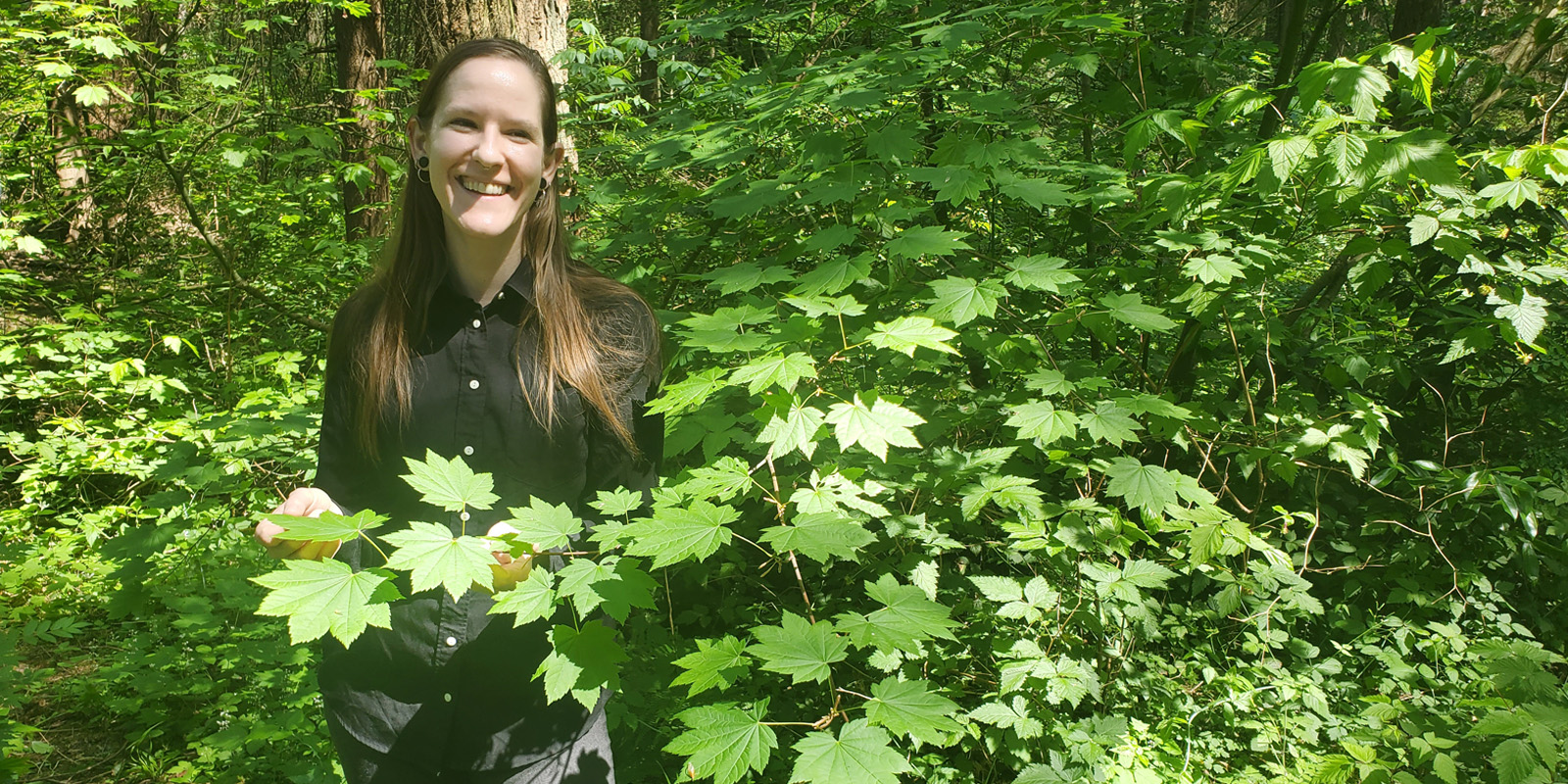In fall 2021, an extensive ecological restoration project was initiated to rebuild and conserve the foreshore area of Granite Falls in Say Nuth Khaw Yum Provincial Park. Led by Tsleil-Waututh Nation in partnership with SeaChange Marine Conservation Society and BC Parks, the project was guided by historical knowledge from Nation members and involved many scientists and contractors.
“We worked very hard, for multiple days, and everything was boat access with challenging logistics,” recounts BCIT alum Erin Rutherford, Ecosystem Services Manager for Inlailawatash, an environmental restoration company owned by the Tsleil-Waututh Nation.
“In the end, we successfully planted and restored the foreshore. But one day later, the atmospheric river arrived, causing extreme flooding in the area. We were so concerned about what was going to happen after all our hard work. Was everything going to just crumble into the ocean?”
Upon visiting the site after the storm, they discovered the shore had held together.
“It gave me so much hope to see that our tangible efforts had protected the area,” shares Erin. “The area was going to keep growing and restoring into the future…and that was exciting.”
Erin Rutherford finds purpose with a career in ecological restoration
“It’s a real honour to work with the Tsleil-Waututh Nation to achieve their goals of stewardship of the land,” says Erin, who is focused on growing their new department as Ecosystem Services Manager. “I get to restore ecosystems and protect vulnerable species. That is very rewarding.”
Erin, who spent 19 years of their career outdoors in a biological technician role, says that ecological restoration work comes with challenges. She offers examples including the historic use and possession of land coupled with a colonial mindset as well as climate change and its effects, like wildfires and flooding.
Despite these obstacles, Erin remains hopeful that there is an emerging movement to restore the environment and says that the key to successful restoration is Indigenous land stewardship in partnership with Indigenous communities. Erin adds that there are many passionate people in her industry taking steps towards positive change.
She stays committed to her cause with the help of a famous quote attributed to the Talmud: “Do not be daunted by the enormity of the world’s grief…You are not obligated to complete the work, but neither are you free to abandon it.”
Unearthing a new path through mentorship, generosity, and hard work
Since their youth, Erin says she was drawn to environmental activism, taking part in logging truck blockades and other protests. She recalls wanting to channel her passion into productivity, but that the idea of a four-year degree seemed unattainable: “I come from a working-class background, who didn’t have a role model growing up for the idea of going to post secondary and becoming a professional with letters after my name.”
Erin, who is now a three-time BCIT alumna with a master’s degree in Ecological Restoration, says the mentorship of BCIT instructors and multiple student awards helped her reach her potential: “Scholarships made a huge difference in my ability to not have to work concurrently through school and to afford basic things like medical care…I graduated with very high grades. Now, I have a living wage and it’s great…Not everyone like me makes it here. It’s my education that directly allowed me to achieve this.”
Want to help BCIT students? Give back to help students achieve their dreams.
Thinking about a career in environmental restoration? Erin says BCIT alumni, whom she actively seeks to hire, have an advantage in this emerging field and offers this advice: “There’s so much work to be done but you don’t have to do everything…Specialize in your interests and play to your strengths.”
Learn more about BCIT School of Construction and the Environment and Ecological Restoration programs.
